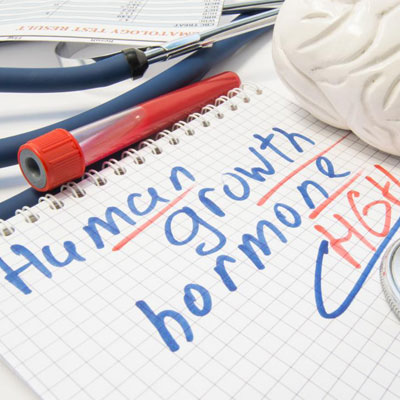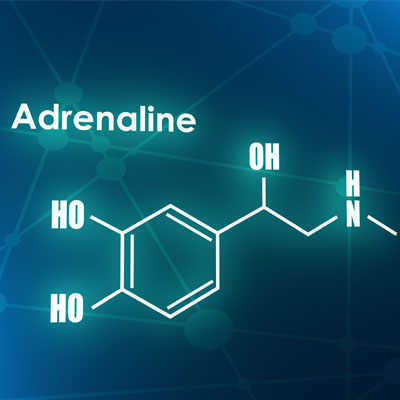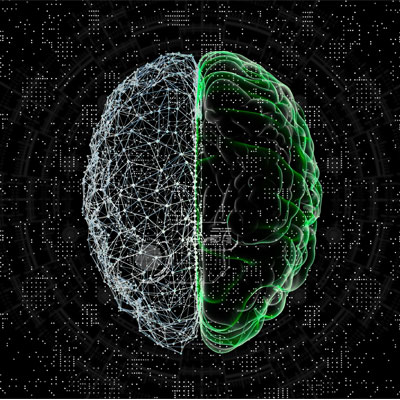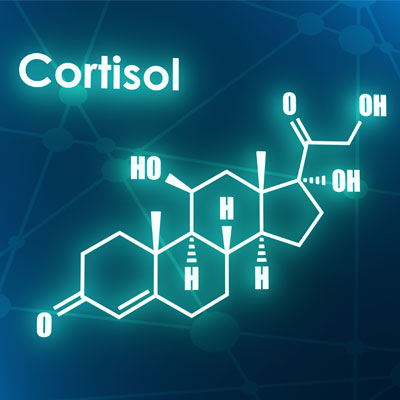Contents
- What are adrenal hormones?
- What Hormones Do the Adrenal Glands Produce?
- What hormones does the adrenal gland produce in the adrenal cortex?
- What hormones do the adrenal glands produce in the adrenal medulla?
- Functions of the Adrenal Hormones
- What do adrenal hormones do when they are released into the bloodstream?
- Conditions Involving Adrenal Hormone Imbalance
- What do adrenal hormones do when their levels are too high?
- What to Do about Adrenal Hormone Imbalance
- What do adrenal hormones do if they are out of balance and you do not treat them?
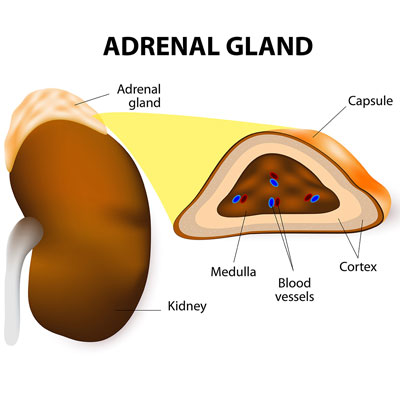
What are adrenal hormones?
The adrenal hormones fall under the category of steroid compounds (hormones), which are synthesized from cholesterol. Without proper dietary cholesterol, the body cannot manufacture crucial steroid hormones that it needs.
Hormones secreted by adrenal glands carry out functions such as:
- Regulating blood pressure and heart rate
- Maintaining water and salt levels
- Supporting metabolic functions
- Stimulating glucose production
- Engaging the fight or flight responses to stressful situations
- Providing anti-inflammatory properties
- Helping your body handle stress
- Supporting immune system functions
An adipose capsule forms a protective layer around each of the adrenal glands. The adrenal cortex, the outer layer, consists of three separate zones:
- Zona Fasciculata
- Zona Glomerulosa
- Zona Reticularis
Hormones produced by adrenal cortex zones as well as the adrenal medulla enter the bloodstream to travel to their respective receptor cells to carry out their functions.
Adrenal hormones carry out crucial functions including regulating blood pressure, water and salt levels, stress, metabolism, and immune system functions.
What Hormones Do the Adrenal Glands Produce?
The adrenal cortex and adrenal medulla provide very distinct and different hormones. In some cases, the adrenal glands produce hormones called sex hormones, such as testosterone and estrogen. Although the majority of the body’s sex hormones come from the testes and the ovaries, the adrenal glands, particularly the zona reticularis in the adrenal cortex, provides an additional supply. When a woman enters menopause, her ovaries no longer produce sex hormones. At that time, it is the adrenal glands that produce the testosterone and estrogen she needs.
What hormones does the adrenal gland produce in the adrenal cortex?
The hormones secreted by adrenal cortex zones include:
Zona Fasciculata:
- Cortisol (hydrocortisone) – a glucocorticoid hormone
Zona Glomerulosa:
- Aldosterone – a mineralocorticoid hormone
- Corticosterone – glucocorticoid and mineralocorticoid hormone
Zona Reticularis (steroid hormones):
- DHEA
- Estrogen
- Testosterone
- Androstenedione
What hormones do the adrenal glands produce in the adrenal medulla?
The hormones secreted by the adrenal medulla are not essential for life, but they do help the body in times of stress and include:
- Epinephrine (adrenaline)
- Norepinephrine (noradrenaline)
- Dopamine (small amount)
Cortisol, aldosterone, and epinephrine are some of the most well-known hormones produced by the adrenal glands.
Functions of the Adrenal Hormones
You probably already know cortisol as the stress hormone. Aside from its functions that we will list below, cortisol can also interfere with the production of testosterone and growth hormone. Cortisol is antagonistic to testosterone and GH. When its levels are high, the other two hormones decline. That can lead to sleep interference since elevated cortisol levels tend to keep the body on high alert at night. By increasing growth hormone and testosterone, cortisol secretion can decline and return to normal.
What do adrenal hormones do when they are released into the bloodstream?
The hormones released by adrenal gland zones of the adrenal cortex carry out the following functions:
Zona Fasciculata:
Cortisol:
- Assisting with the metabolism of carbohydrates, fats, and protein
- Blood pressure regulation
- Inflammation suppression
- Increasing blood glucose levels
- Decreasing bone formation
- Regulating sleep/wake cycle
- The body’s stress hormone which provides an energy boost during stressful situations
Zona Glomerulosa:
Aldosterone:
- Balancing potassium and sodium (electrolytes) to maintain the blood PH balance
- Blood pressure regulation
Corticosterone:
- Precursor to aldosterone
- Helps regulate immune responses
- Suppresses inflammatory reactions
- Exerts effects on long-term memory and fear memory recognition
Zona Reticularis:
- DHEA – precursor to androstenedione, testosterone, and estrone (estrogen)
- Androstenedione – precursor for testosterone and estrogen
- Estrogen
- Testosterone
The adrenal glands hormones from the adrenal medulla provide the following functions:
Epinephrine (adrenaline)
- Provides for a swift response to stressful situations by increasing heart rate
- Rushes blood to the brain and muscles
- Helps convert glycogen in the liver to glucose to increase blood sugar levels
- Norepinephrine (noradrenaline)
- Works with epinephrine
- Narrows blood vessels to increase blood pressure
- Dopamine
- Precursor to epinephrine and norepinephrine
Functions of adrenal hormones help the body handle stress, balance electrolytes, reduce inflammation, and regulate blood pressure.
Conditions Involving Adrenal Hormone Imbalance
When any of the hormones produced by adrenal gland cortex and medulla are out of balance, a number of health issues can occur. Disorders of the adrenal glands can come from a problem with the glands themselves, or the pituitary gland or hypothalamus.
What do adrenal hormones do when their levels are too high?
Overactive adrenal glands can cause the following conditions:
Hyperaldosteronism:
- Primary – overproduction of aldosterone by adrenal glands resulting in high blood pressure
- Secondary – resulting from overactivity of the renin-angiotensin system
- Conn’s syndrome – a primary form of hyperaldosteronism due to an aldosterone-producing tumor (adenoma)
Cushing’s syndrome:
- Cushing’s disease – caused by a tumor in the pituitary gland secreting excessive adrenocorticotropic hormone (ACTH)
- Adrenal tumor – increasing cortisol production
Caused by overproduction of cortisol, this condition can lead to the following issues:
- High blood pressure
- Diabetes
- Obesity
- Muscle weakness
- Osteoporosis
- Skin thinning and bruising
- Irregular menstrual cycles
- Increased facial hair growth
- Slow wound healing
- Infection susceptibility
Underactive hormones of the adrenal gland can lead to the following conditions:
Hypoaldosteronism:
- Primary – primary adrenal insufficiency, aldosterone synthase deficiency, or congenital adrenal hyperplasia
- Secondary – secondary adrenal insufficiency, pituitary or hypothalamus disease
- Hyporeninemic – renal dysfunction (diabetic nephropathy), ciclosporin, NSAIDs
Addison’s disease (adrenal insufficiency):
A rare disease that occurs when the adrenal cortex cannot produce enough aldosterone and cortisol:
- Primary – problems with the adrenal gland that may result from autoimmune issues (most common), fungal infections, cancer spreading from other parts of the body, tuberculosis, or the virus cytomegalovirus (associated with AIDS)
- Secondary – resulting from issues with the pituitary gland or hypothalamus such as certain inflammatory disease, tumors in the pituitary or hypothalamus, surgery or radiation used as treatment for the tumor, or from the use of glucocorticoids to treat conditions such as asthma, Crohn’s disease, ulcerative colitis, or rheumatoid arthritis
Symptoms of Addison’s disease include:
- Abdominal pain
- Darkened skin
- Depression
- Dizziness upon standing
- Fatigue
- Low blood pressure levels
- Nausea
- Salt craving
- Weakness
- Weight loss
Congenital adrenal hyperplasia:
- A genetic disorder resulting in low cortisol levels (aldosterone levels may also be low) due to a missing enzyme
Another concern is a rare but highly aggressive form of cancer called Trusted sourceMayo ClinicAdrenal CancerGo to sourceadrenal cancer . Malignant adrenal tumors are likely to spread through the body to other organs, affecting the production of additional hormones.
Both high and low adrenal hormones can cause significant issues for the body.
What to Do about Adrenal Hormone Imbalance
When hormones from adrenal gland cortex and medulla are out of balance, you must take action to correct the problem. In all cases, the situation can worsen if ignored. The treatment for an imbalance in adrenal hormones depends on the specific cause.
If primary Addison’s disease is the problem, both cortisol and aldosterone replacement therapy are likely necessary. In secondary Addison’s disease, most people are low only in cortisol, so that is the only treatment required.
The treatment of Cushing’s syndrome depends on the cause and may include the removal of the tumor as well as radiation therapy. In some cases, the treatment of the tumor may lead to secondary adrenal insufficiency. Cortisol replacement may be necessary until the body once again produces enough natural cortisol.
Trusted sourceHealthlineUnderstanding HyperaldosteronismGo to sourceHyperaldosteronism can lead to fluid retention, weakness, and increased blood pressure. The treatment here also depends on the cause. If a tumor is the reason for high aldosterone levels, then removal of the tumor can reverse the problem. Medications to block aldosterone action may also be helpful. If the problem is due to another issue, then the treatment of the underlying problem (such as hypertension or narrowing of the arteries to the kidneys) can help.
What many people do not know is that the consumption of real licorice (not the candy found in most stores) can cause symptoms associated with hyperaldosteronism. If you buy real licorice, watch how much you eat and be aware of the symptoms of hyperaldosteronism.
Too much adrenaline or noradrenaline may be the result of a tumor called a pheochromocytoma. Some people have a genetic predisposition to these tumors, which can cause anxiety, headaches, high blood pressure, rapid heartbeat, sweating, and tremors. Another tumor, called a paraganglioma, may occur in neural crest tissue, causing an increase in adrenaline or noradrenaline production.
What do adrenal hormones do if they are out of balance and you do not treat them?
Ignoring the warning signs in the body is dangerous if you have any types of symptoms. Any hormonal imbalance can adversely influence other vital hormones. It is imperative to seek the help of an experienced hormone specialist if you suspect a problem.
- Thomas Rosol, DVM, PhD, MBA, John T. Yarrington, DVM, PhD, Dr. John Latendresse, Dr. Charles C. Capen
- Dr. Anne-Louise Gannon, Laura O’Hara, PhD, J. Ian Mason, Anne Jørgensen, MSc, PhD, Hanne Frederiksen, MSc, PhD, Laura Milne, Sarah Smith, Rod T Mitchell, MBChB, BSc (Med Sci), PhD, Lee Smith, BSc Hons, PhD
- Jelena Savici, Romeo Teodor Cristina, DVM, PhD, Diana Brezovan, PhD, Isidora Radulov, PhD, Cornel Balta, MD, Oana-Maria Boldura, PhD, Muselin Florin, PhD, DVM, MS
Adrenal Gland: Structure, Function, and Mechanisms of Toxicity
Androgen receptor signalling in the male adrenal facilitates X-zone regression, cell turnover and protects against adrenal degeneration during ageing
Aronia melanocarpa Ameliorates Adrenal Cytoarchitecture Against the Hexavalent Chromium-Induced Injury
rel=”nofollow”

